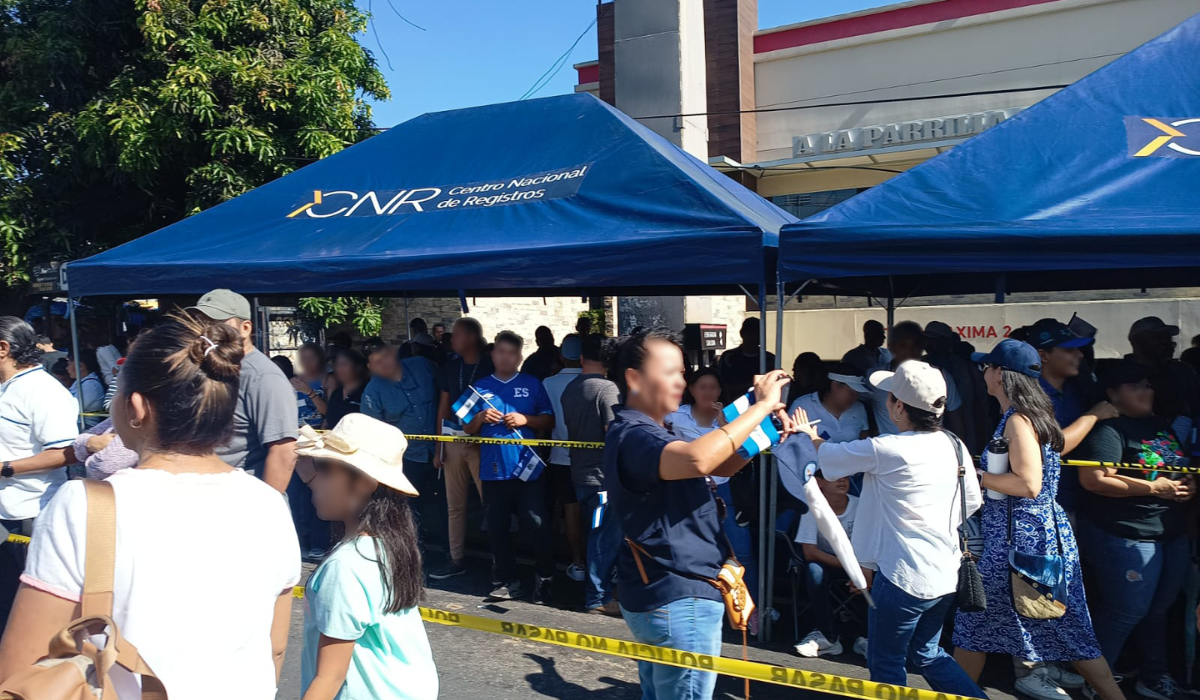Public officials created a narrative that today marks a true independence. However, YSUCA verified that public employees were required to attend the commemoration by their superiors.
Starting Thursday, there were complaints from public employees claiming to have received emails instructing them to attend the official event.
During the event, YSUCA spoke with employees from the Central Reserve Bank, Mortgage Bank, and the National Registry Center. They confirmed that attendance was taken at the beginning of the event and they were given instructions not to leave until the end of the activity. They were also warned that attendance would be taken again.
Most employees chose to speak off the record for fear of retaliation. Others mentioned staying briefly, taking a group photo, and then heading home.
The parade provided an opportunity for informal vendors, who offered various products. They mentioned that the number of attendees could boost their earnings.
On this occasion, the parade that started from the Plaza al Divino Salvador del Mundo did not include student participants. They watched the parade from the stands set up around the Alameda Roosevelt.
Editorials from the UCA suggest that what’s being celebrated is militarism, not independence.
Like the rest of the Central American countries, El Salvador had a peaceful independence, states a UCA editorial. Furthermore, those who championed independence were primarily intellectuals, professionals, priests, and men of the law. There were no military personnel.
The question arises: does it make sense for a peaceful and civil independence to be commemorated with a military parade, emphasizing force as a means to defend the state? The UCA adds in its editorial.
Gobierno obliga a empleados públicos a asistir al desfile de independencia
Funcionarios públicos crearon la narrativa de que hoy se celebra una verdadera independencia. Sin embargo, YSUCA constató que de manera obligada, empleados públicos, asistieron a la conmemoración por mandato de sus jefaturas.
Desde el día jueves se recibieron denuncias de empleados públicos que aseguraban haber recibido correos electrónicos donde les solicitaron asistir al evento oficial.
Durante el evento, YSUCA conversó con empleados del Banco Central de Reserva, Banco Hipotecario y del Centro Nacional de Registros, quienes confirmaron que les habían pasado lista de asistencia al inicio del evento y les habían dado instrucciones de no retirarse hasta el final de la actividad, y les advirtieron que volverían a pasar lista.
La mayoría de empleados decidieron hablar fuera de grabación por temor a represalias. Otros dijeron que llegaron por un corto tiempo, sólo se tomarían una foto de grupo y luego se irían a sus hogares.
El desfile fue aprovechado por los vendedores informales, quienes ofrecían todo tipo de productos. Dijeron que la cantidad de asistentes les podía dar un empuje económico.
En esta ocasión, el desfile que salió de la Plaza al Divino Salvador del Mundo no contó con la presencia de estudiantes. Ellos vieron el desfile desde las gradas instaladas en los contornos de la Alameda Roosevelt.
Editoriales de la UCA señalan que lo que se celebra es el militarismo, más no la independencia.
El Salvador, al igual que el resto de países centroamericanos, tuvo una independencia pacífica, dice un editorial de la UCA. Además, quienes abanderaron la independencia eran intelectuales, profesionales en su mayoría, sacerdotes y hombres de leyes. No hubo militares.
Surge la pregunta: ¿tiene sentido que una independencia pacífica y civil se conmemora con un desfile militar, ensalzando la fuerza como recurso para defender al Estado?, agrega la UCA en su editorial.

